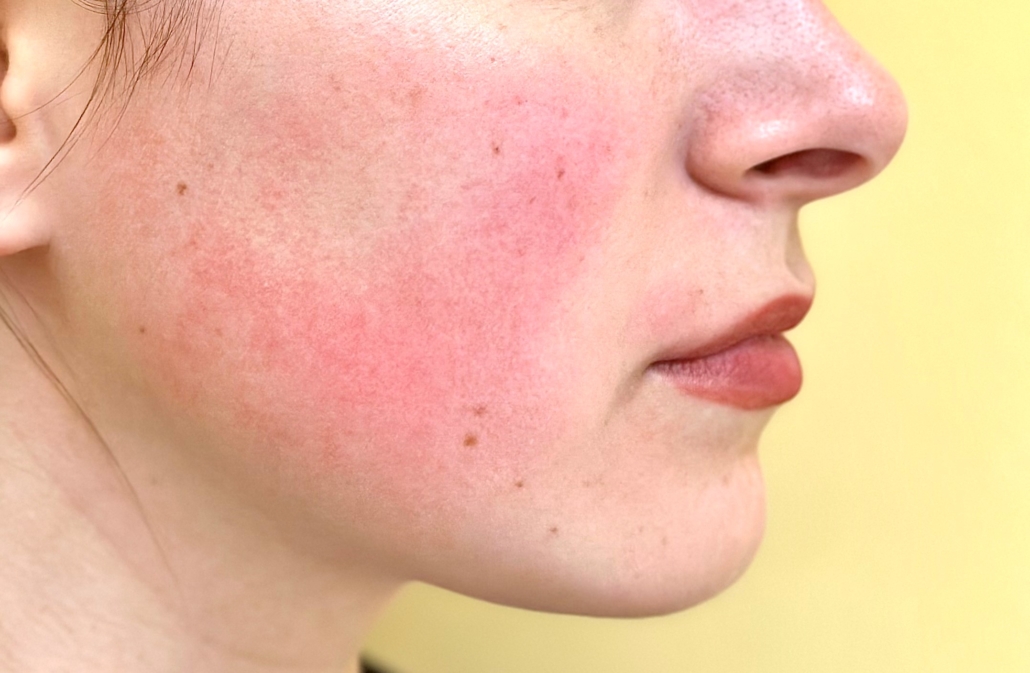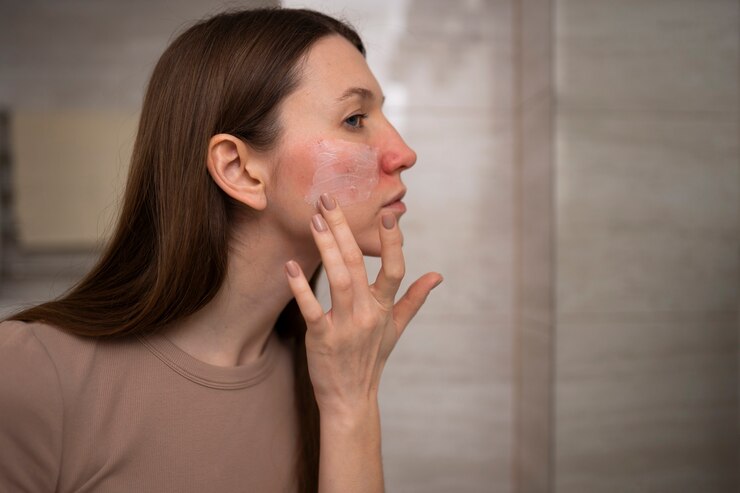Managing rosacea requires a combination of medical treatments, lifestyle adjustments, and preventive measures. Rosacea, a chronic skin condition characterized by redness, flushing, and sometimes acne-like bumps, can be unpredictable, with symptoms flaring and subsiding. Although there's no cure for Rosacea Treatment in Dubai, effective management can significantly reduce its impact on your daily life. Understanding your triggers, sticking to a gentle skincare routine, and seeking professional advice can help you control the condition.
Identifying and Avoiding Triggers
One of the most critical steps in managing rosacea is identifying and avoiding personal triggers that cause flare-ups. Common triggers include extreme temperatures, spicy foods, alcohol, hot drinks, and emotional stress. Keeping a rosacea diary can help track potential triggers, allowing you to avoid them whenever possible.
- Weather Protection: Extreme heat, cold, and wind are common culprits behind rosacea flare-ups. To protect your skin, wear sunscreen with at least SPF 30, dress appropriately for the weather, and consider using a scarf to shield your face from cold wind.
- Dietary Adjustments: Spicy foods, caffeine, and alcohol can trigger rosacea symptoms in some individuals. Monitor your diet closely to identify foods that worsen your condition. Switching to an anti-inflammatory diet rich in fruits, vegetables, and omega-3 fatty acids may help reduce inflammation.
- Stress Management: Emotional stress is a well-known trigger for rosacea flare-ups. Incorporating stress-relieving practices like yoga, meditation, deep breathing exercises, or even regular exercise can help keep flare-ups in check.

Gentle Skincare Routine
Rosacea-prone skin is sensitive, so choosing the right skincare products is essential. Harsh or irritating products can exacerbate the condition, leading to redness and discomfort.
- Cleansers: Opt for a gentle, fragrance-free cleanser that won't strip the skin of its natural oils. Avoid scrubs or exfoliants that can damage the skin's barrier.
- Moisturizers: Keeping the skin hydrated is crucial in managing rosacea symptoms. Look for moisturizers that are soothing, non-comedogenic, and free from artificial fragrances or alcohol.
- Sunscreen: Sun exposure is a common trigger for many rosacea patients. Use a broad-spectrum sunscreen daily, even on cloudy days. Physical sunscreens containing zinc oxide or titanium dioxide are often better tolerated by sensitive skin.
Medical Treatments
For many people, lifestyle changes and skincare adjustments aren't enough to fully manage rosacea. Medical treatments are often necessary, and dermatologists can recommend several effective options based on the severity and subtype of rosacea.
- Topical Medications: Prescription creams and gels, such as metronidazole, azelaic acid, and ivermectin, are commonly prescribed to reduce inflammation and redness. They work by decreasing bacteria on the skin and controlling symptoms over time.
- Oral Medications: For moderate to severe rosacea, oral antibiotics like doxycycline are often used for their anti-inflammatory properties. In more severe cases, isotretinoin (a potent drug usually prescribed for acne) may be used under close supervision by a dermatologist.
- Laser and Light Therapy: For those with visible blood vessels or persistent redness, treatments like Intense Pulsed Light (IPL) and pulsed dye lasers can be highly effective. These therapies target the blood vessels beneath the skin, reducing redness and flushing.
Dealing with Flare-Ups
Even with consistent management, flare-ups can still occur. The key is to minimize their severity and duration.
- Stay Cool: Overheating can exacerbate rosacea symptoms. If you feel a flare-up coming on, cool your skin with cold water or a damp cloth. Use fans or air conditioning to keep your environment cool during hot weather.
- Manage Stress: Flare-ups can also be triggered by stress, so it's important to manage your emotions and practice relaxation techniques when you feel stress levels rising.
- Soothing Treatments: Aloe vera gel, green tea extract, or products containing chamomile may help calm the skin during a flare-up. These ingredients have anti-inflammatory properties that can reduce redness and discomfort.
Working with a Dermatologist
A dermatologist plays a critical role in helping you manage rosacea effectively. Regular check-ups ensure that your treatment plan is working, and adjustments can be made if necessary. Since rosacea symptoms can vary significantly from person to person, a tailored approach is essential for long-term management.
If you're unsure about which treatments or products are best for your skin type, consulting a professional can prevent complications and ensure that you're using the most effective therapies. Dermatologists may also suggest combining treatments, such as topical medications and laser therapy, for optimal results.
Staying Consistent with Treatment
Rosacea management requires patience and consistency. While some treatments may show immediate results, others take weeks or even months to work effectively. It’s essential to follow your dermatologist’s recommendations closely and maintain your skincare routine, even when symptoms improve. Regular use of prescribed treatments, lifestyle adjustments, and professional advice are key to achieving the best possible outcomes.
Conclusion
Managing rosacea is about more than just treating flare-ups when they happen. It involves a comprehensive approach that includes identifying triggers, using gentle skincare products, incorporating medical treatments, and staying consistent with a long-term plan. By working closely with your dermatologist and making lifestyle changes, you can keep rosacea under control and reduce its impact on your life. Although there's no cure, with the right strategies, rosacea symptoms can be significantly reduced, improving both your skin and overall quality of life.





Comments